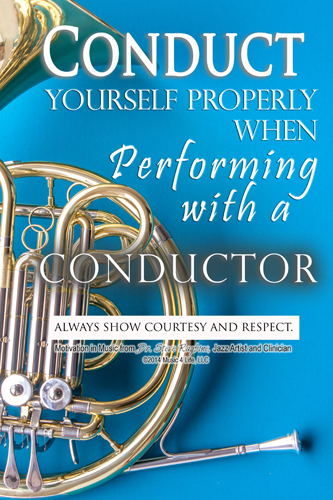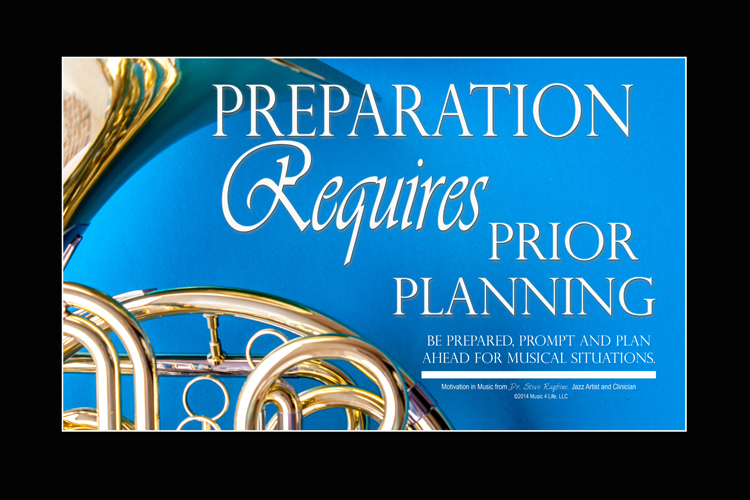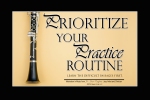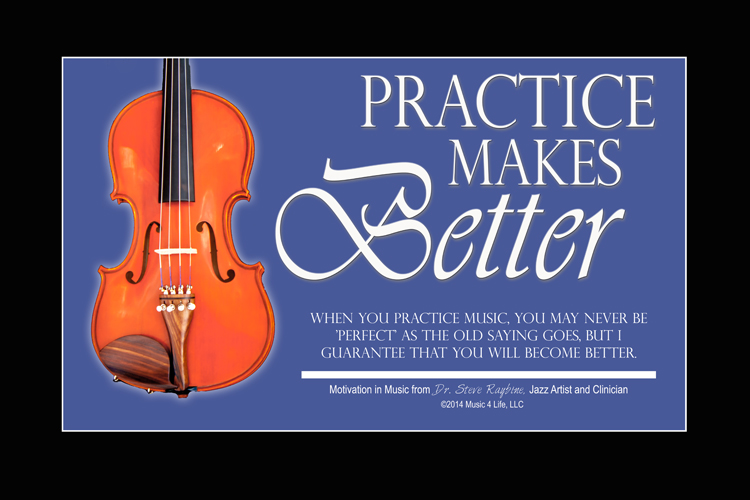As a classically and jazz-trained percussionist with a Doctorate degree in percussion performance, I have spent thousands of hours participating in or observing high school concert band rehearsals–some very good and others less-than-ideal.
So, what elements do-or-do-not make for a stimulating and musically challenging symphonic concert band rehearsal? Here are some of the most pertinent issues that most directly affects the outcome of a productive rehearsal:
Conduct yourself Properly- Posters for the Band Room
&
It all begins with the band director. During my high school band years in Oshkosh, Wisconsin, I had the great fortune of working with the esteemed conductor, Dr. James Croft. Throughout his tenure teaching high school band for 20 + years in Wisconsin and subsequent years as the principal wind ensemble conductor at Florida State University in Tallahassee, Florida, Dr. Croft became one of the world’s pre-eminent symphonic wind ensemble conductors.
Dare I say that it was an honor and a privilege to have been trained by this great musician during my formative years–emphatically, yes!
Dr. Croft was the epitome and embodiment of musical excellence. Not only was he a great musician, but he possessed that rare trait of inspiring all his students to greatness. I have rarely found that remarkable gift in many conductors–he was a unique and special man and talent. He never accepted anything less that your best performance and behavior during his rehearsals and might I say, that they were intense!
When you Inspire you Light the Fire- Music Posters for the Classroom
&
If you were not prepared to play your individual parts to his satisfaction, you were immediately chastised and challenged to “step up your game!” If you didn’t take the music seriously, you wouldn’t last long in his band–you’d be demoted and that would have been devastating!
I was the percussion section leader for three years under the direction of Dr. James Croft. He inspired me; motivated me and once chastised me for not having my section prepared to perform at their peak potential–45 years later I still vividly remember that moment…and it never happened again!
If you were a section leader in the Oshkosh High School Concert Band, you were not only a great young musician, but you were held in the highest possible regard by your peers! It was an honor to assume this position, and all of us took it very seriously. My allegiance and participation to the band forever set the highest possible standards within me, and for that I am immensely grateful
I’m summation: if you want a great symphonic concert band experience, you’ll need a great conductor
10 Tips for a Wind Band Conductor
10 traits a symphonic wind ensemble conductor should possess in order to assure a successful musical experience for his or her students
- Be a well-trained and insightful conductor that is capable of interpreting the concert score accurately and musically to the students.
- Possess high musical standards and demand the same from the students. Never compromise mutually-collaborative musical standards of excellence!
- Preparation is of paramount importance prior to rehearsing. Never rehearse a composition without having first studied the score in detail.
Preparation Requires Prior Planning – Music posters for band rooms and classrooms
&
4. Understand and implement effective rehearsal techniques–don’t waste valuable rehearsal time. Time-management skills are a necessary component for all successful conductors.
5.Command the rehearsal space and set the proper tone during rehearsals, which must carry over into performances. Don’t tolerate distractions; negative or counter-productive behavior or lack of preparation by the student musicians.
6. Use affirming and inspiring interpersonal skills whenever possible with student musicians. Although it is essential to have high expectations and to challenge the performers, it can be advantageous to frame one’s commentary with a positive “spin” during your verbal communications.
7. Build collegiality within the band. The band performs as one unified entity, so encourage a singular consciousness during rehearsals and performances.
8. Be accessible to students during-and-after rehearsals. Students will invariably have questions regarding the music, so make yourself available to address their questions–preferably without intimidating them.
9. Use your creativity to enhance the musical experience. This may involve creative approaches to rehearsing certain portions of the score; video or audio taping the rehearsal, etc.
10.A sense-of-humor can work to your advantage when dealing with moments of frustration that may arise periodically within rehearsals. Try to make the music-making process positive and fun for the entire band…including yourself!









